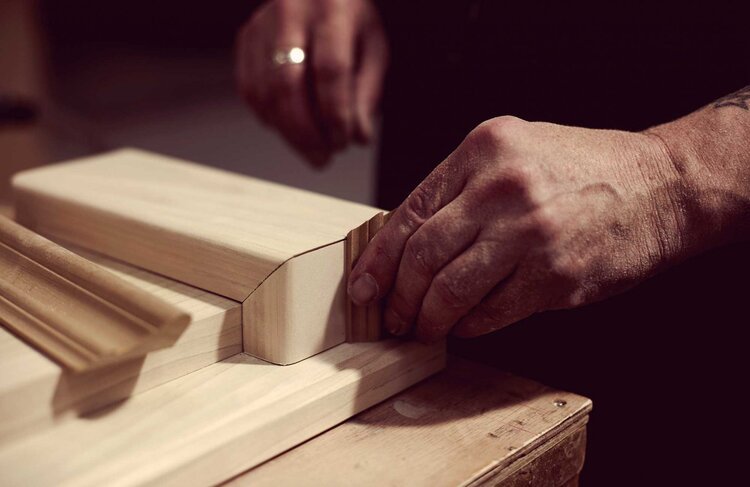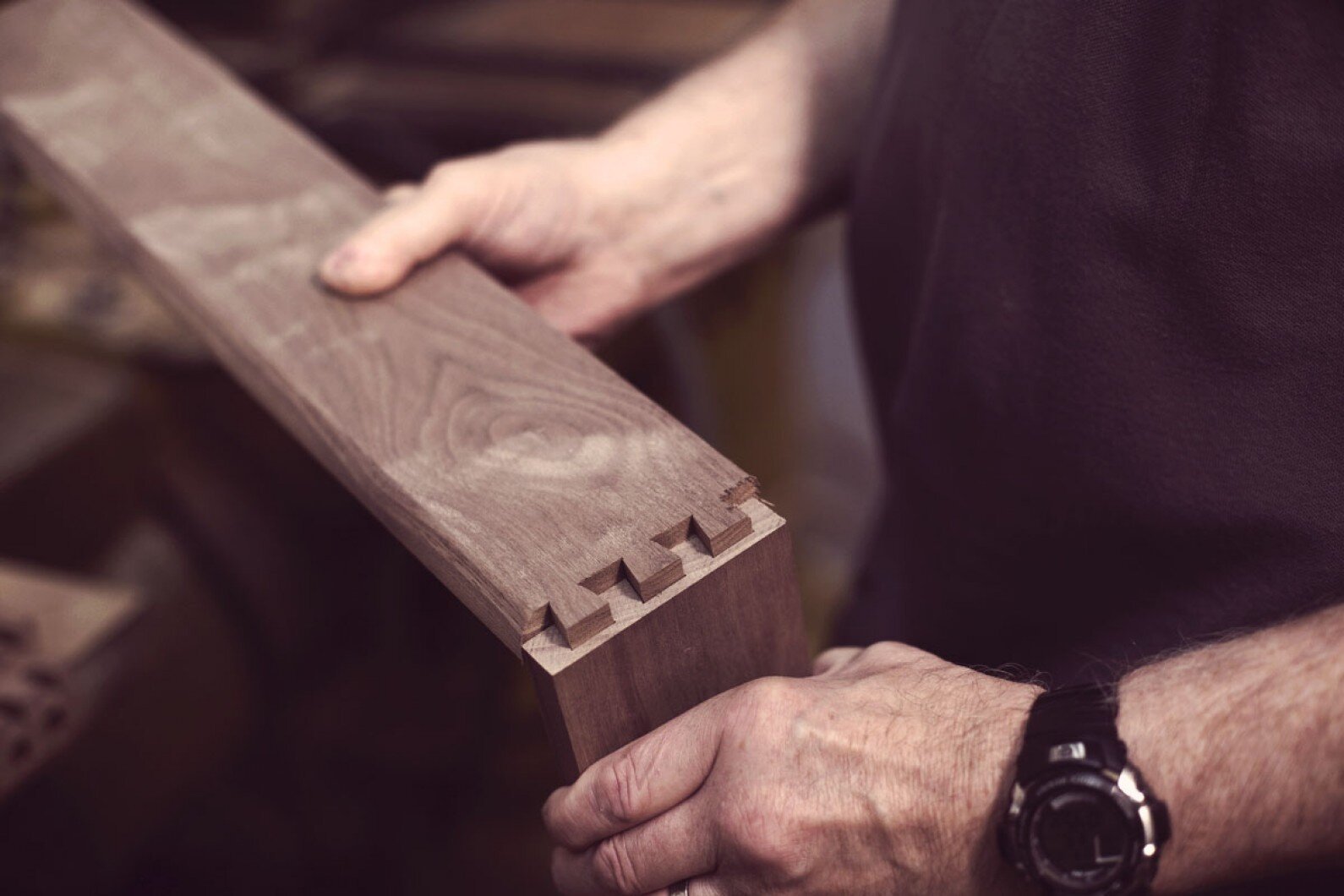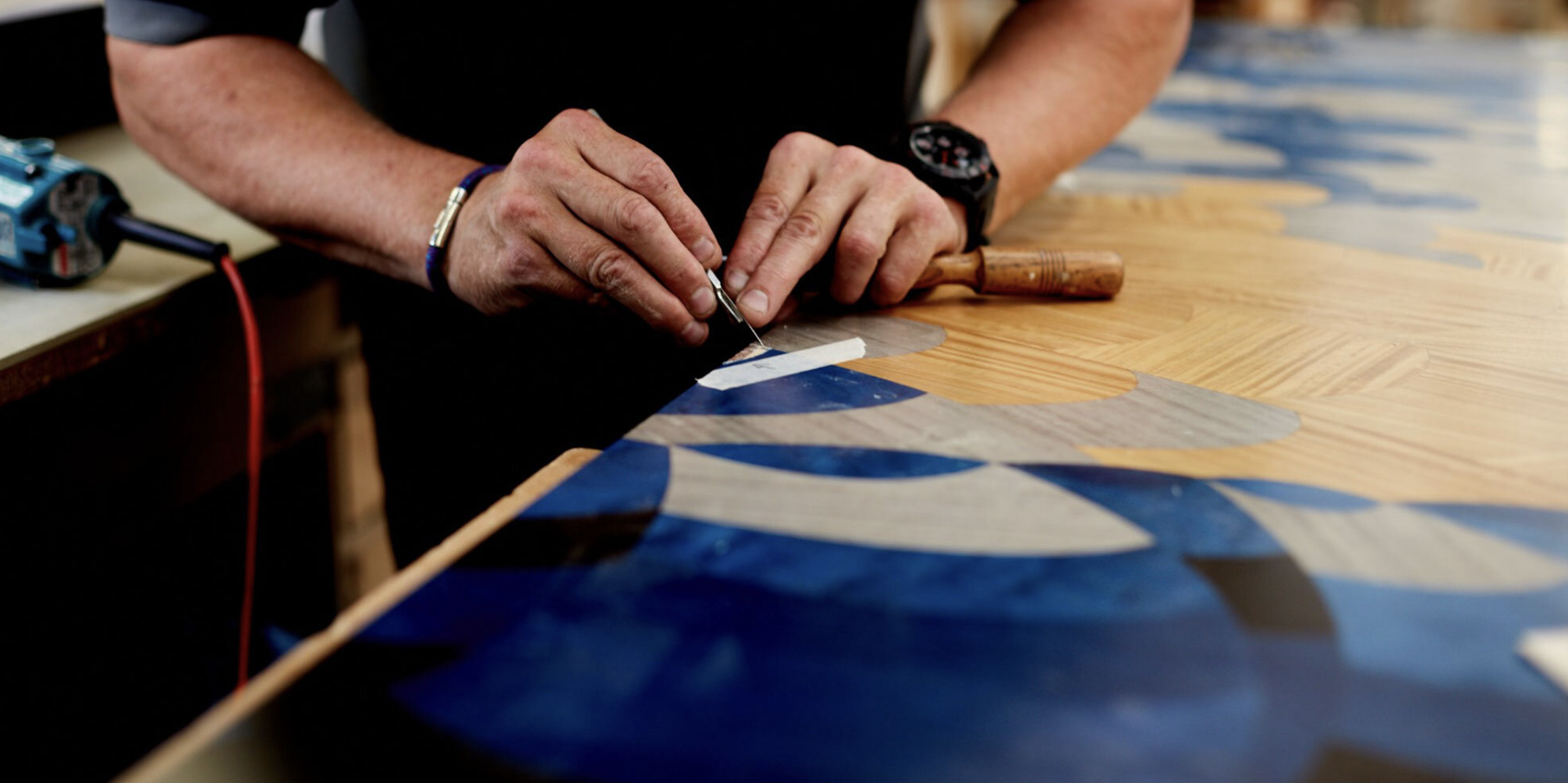Expert Opinion: Bridging the Skills Gap
We’re investing more in our homes than ever, with spending on home improvement up 50% since the pandemic. In the Kitchens, Bedrooms and Bathrooms (KBB) sector alone, sales were expected to top £5 billion in 2022.
But as demand soars, the industry is facing a challenge when it comes to its workforce. According to the British Institute of KBB Installation (BiKBBI), “There is a significant shortfall of proficient, skilled people entering the industry to meet existing demand, let alone future growth opportunities.”
At Clive Christian, we pride ourselves on the exceptional skill and passion of our workforce, from the vision and creativity of our designers to the precision and craftsmanship of our manufacturing and finishing teams.
So what steps can be taken to address the shortfall in skilled labour supply? We spoke to Clive Christian’s managing director and owner, Phil Cole, and Damian Walters of the BiKBBI, to discuss the challenge facing the industry, and the steps that can be taken to overcome it.
Phil Cole, Managing Director and Owner at Clive Christian (L) and Damian Walters, Chief Executive of the BiKBBI.
What is the sector skills gap and how is it affecting brands like Clive Christian?
PC: We’re seeing a skill shortage in the KBB industry generally, particularly from a trade point of view where there are specialist manufacturing skills required in brassware and timber, for example.
Nowadays, if you train as a joiner, the go-to exit would be to work on an actual construction site – it’s less likely that you would work for a manufacturer or in a facility.
Traditional hand-making is sadly no longer taught at colleges so much, and this was previously a key way for people to get into cabinetry as a career. Here at Clive Christian, we have a particular need for specialist craftspeople in joinery and cabinetry. All our products are hand-finished, so these skills are really important.
DW: Kitchen, bedroom and bathroom installation can be an incredibly rewarding career, with opportunities open to all, regardless of background. So why are we experiencing a skill gap crisis if it’s such a rewarding career pathway? Sadly, a generational neglect of vocational learning is the root cause. Quite simply, the dot.com revolution of the nineties killed vocational careers and, whilst some industries were tuned in and subsequently reacted, the KBB industry did not. That has led to at least one, but possibly two, generations of lost labour. When you then add Brexit and a global pandemic to the mix, we subsequently find ourselves in a perfect storm with an overwhelming skills gap crisis – not just here, but globally too.
What is the main challenge the industry is facing?
PC: As a specialist brand based in the UK, it can be particularly challenging to find the right people. While there has been a great resurgence in UK manufacturing recently, for a long time all manufacturing was moving overseas.
A majority of manufacturers in the industry are still international, so the demand for labour has historically been greater overseas, which means the supply chain has been starved. We need help from the government in terms of funding and helping us get the word out to make people aware of these roles.
We also need the government to do more to promote UK manufacturing. Manufacturing is a massive part of the country’s economic growth, and if we’re not doing what we need to do at the top to facilitate that growth, it makes it difficult for companies to make any impact.
What can the KBB industry do?
DW: BiKBBI launched in 2006 as the first dedicated organisation to focus on the issue and the challenges faced by what was an unrepresented workforce. With collaboration from industry, we have made some considerable progress, with the latest announcement made in September 2023 confirming the government’s approval for a standalone Apprenticeship Standard for fitted interiors. We now have a credible, recognised qualification that is a visible and accessible pathway for the next generation to start their KBB career journey.
Apprenticeships is just one part of a three-pronged strategy to recover the situation. Continued Professional Development (CPD) for time-served professional installers is now available, and a new retraining and resettlement programme in conjunction with the Ministry of Defence will soon be operational to positively impact the situation in the short to medium term.
We have made great strides but there is still much to do, and it is vital that the whole industry recognise the part they must play in solving the skills gap crisis – collaboration is critical to success.
PC: We can do more to re-educate the world about what we do. The incredible craftsmanship that goes into making our products at Clive Christian is fascinating, and when people come on tours of our factories we see a huge interest in how we work.
We’re also really excited about our apprenticeship scheme. One of our marquetry team, Beth, came to us through an apprenticeship and now specialises in veneering and marquetry.
The marquetry team do incredible work, which is highly specialist – very few people in the country can do it. We’re able to offer bespoke imprints, such as family crests, using different colours and types of wood. We created a large sunflower and a Manchester working bee in marquetry for one of our clients. For a client in Edinburgh, we recreated Degournay wallpaper in marquetry on a bathroom cabinet, and we depicted a beautiful racing car on a kitchen mantle for a motoring enthusiast in Weybridge.
For us to be able to bring people through apprenticeships and to develop those skills is very exciting for us. We need to do more to attract people into our different departments, to educate people and highlight the skills that we have within our business.
We also work with schools and colleges to gain interest through apprenticeship schemes to try and get this influx of people.
A member of Clive Christian’s marquetry team at work, and the finished result.
What would you say to someone who’s interested in a career in the industry?
PC: You’d have to ask our team! Some of our staff have been with Clive Christian for 20, 25 years, and a huge part of that loyalty and longevity is the enjoyment factor and the skillset they’ve developed.
Every day is different – it’s very rare that you’re making the same thing from one day to the next. There is a huge amount of pride in turning a length of timber from a large cut of tree into a luxury kitchen or dressing room.
The industry is thriving, too – a lot of manufacturing is coming back to the UK – so it’s a great area to be working in.
Similarly, in the kitchen, we’re integrating products like Kaelo, which uses military-grade cooling hardware to rapid-chill bottles of wine.
What do you look for when recruiting new team members?
PC: Passion is a huge part of it – you have to have a passion for what you do; you have to genuinely, really care.
That’s infectious as well – it has a knock-on effect on our environment and the wider team around, so for us it’s hugely important. Whether they work in sales, marketing or manufacturing, we’re lucky to have people who care and who are passionate about the business.
For more information on current opportunities at Clive Christian, visit our careers page or email us.
To find out how you could support BiKBBI’s objectives, please visit www.bikbbi.org.uk.









